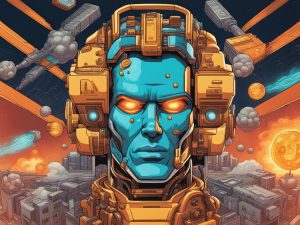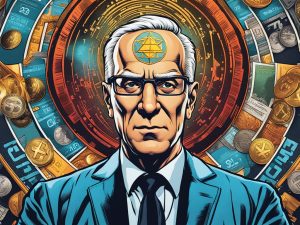Craig Wright Accused of Submitting Forged Documents
The legal battle between Craig Wright and the Crypto Open Patent Alliance (COPA) has taken a new turn. According to COPA’s legal team, several documents submitted by Wright as evidence of his ownership of the Bitcoin network have been doctored and edited.
Wright Claims He Was Set Up
During the cross-examination, Wright protested his innocence, claiming that he had been framed to appear as a liar. He argued that unidentified individuals had forged the computer files he presented as evidence.
Expert Witnesses Confirm Forgery
Despite Wright’s claims, expert witnesses supported COPA’s analysis that the documents were intentional forgeries. They stated that the documents were recent creations and could not be genuine. The word processing software used to create the Bitcoin whitepaper was also brought up, revealing inconsistencies in Wright’s claims.
Irregularities Found in Wright’s Documents
Upon reviewing the documents provided by Wright, COPA found various irregularities. For example, one document contained misalignments in the characters, and another showed a different date than what Wright had stated. These inconsistencies further weaken Wright’s claims.
The Implications of the COPA Trial
The ongoing legal feud between Craig Wright and COPA is not just a clash between tech elites; it centers on fundamental rights related to the development and stewardship of the Bitcoin network. The outcome of this case could determine whether Bitcoin developers can continue their work freely and ensure decentralization and democratization within the cryptocurrency ecosystem.
Hot Take: Upholding Bitcoin Developer Rights
The COPA trial has shed light on Craig Wright’s alleged forgery of documents to support his ownership claims. If proven true, this deception could have significant consequences for the future of Bitcoin development. The trial is not only a battle between Wright and COPA but also a fight to safeguard the rights of Bitcoin developers and preserve the open-source nature of the protocol. Upholding these rights is crucial for maintaining decentralization and democratization within the cryptocurrency industry.


 By
By
 By
By
 By
By
 By
By
 By
By
 By
By